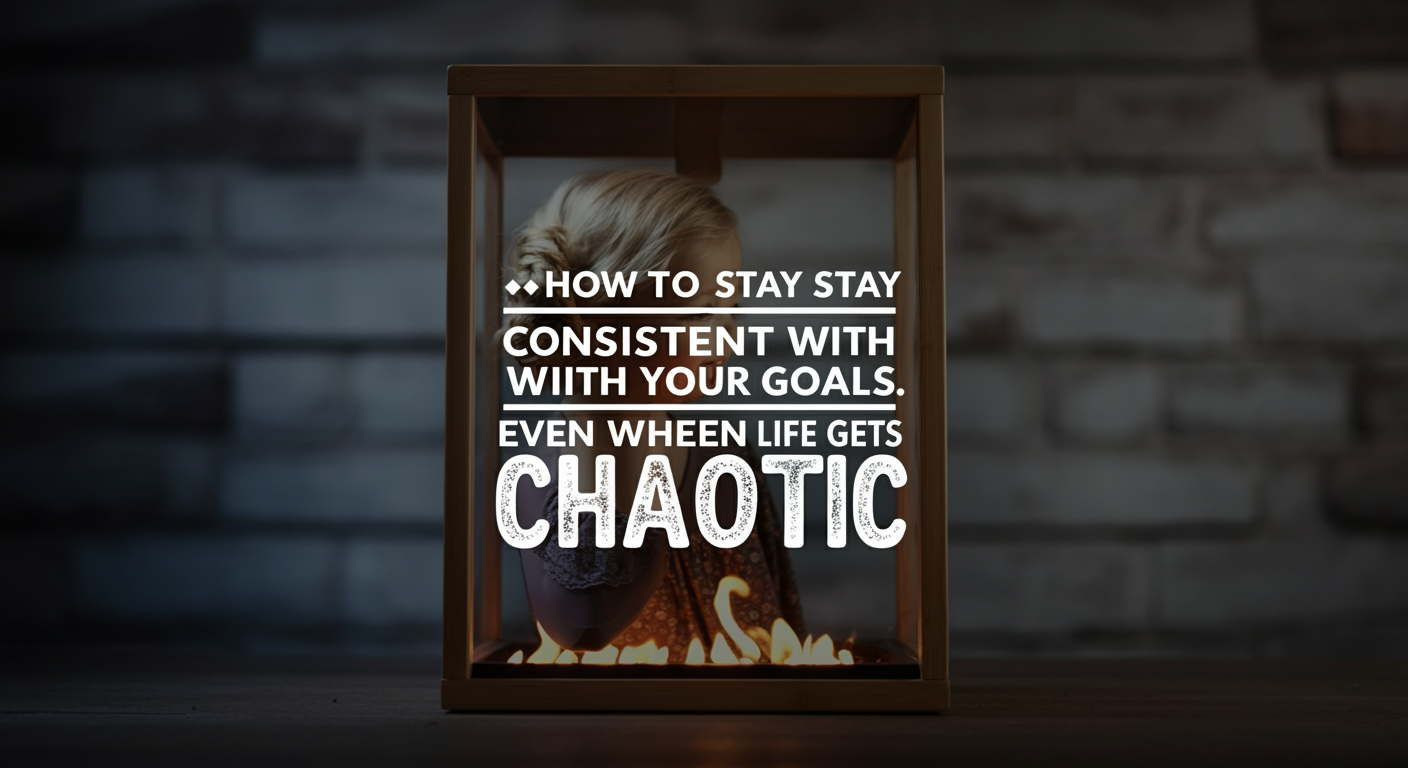Setting goals is the easy part. Staying consistent—especially when life gets messy, busy, or uncertain—is where most people struggle. You start strong, full of energy and good intentions. But then deadlines pile up, routines break, motivation fades… and suddenly your goals are collecting dust.
But consistency isn’t about being perfect. It’s about staying connected to your goals even when things don’t go as planned. It’s about learning to bend without breaking, and showing up for yourself even in the smallest ways.
Here’s how to build true consistency, even when life feels chaotic.
Understand That Consistency Looks Different in Different Seasons
Some seasons are productive and structured. Others are unpredictable, emotional, or exhausting.
And that’s okay.
Consistency doesn’t mean doing the same thing at the same intensity every day. It means staying engaged with your goal—even if the form changes.
Ask yourself:
- What’s one small thing I can do today to stay connected to this goal?
- What does consistency look like for me this week—not in an ideal world, but in my real life?
This mindset shift reduces guilt and helps you build sustainable habits.
Know Your “Why” (So You Don’t Rely on Motivation)
Motivation fades. Life interrupts. But your why can anchor you when everything else feels shaky.
Write it down. Revisit it often. Make it personal.
Ask:
- Why did I set this goal in the first place?
- What will it allow me to feel, become, or create?
- Who else benefits when I stay committed?
The deeper your connection to the reason behind your goal, the easier it is to show up when life gets hard.
Break Your Goals Into Micro-Actions
One reason we lose consistency is because we overcommit to big actions—and then abandon them when we can’t keep up.
The solution: break your goal into smaller, more manageable pieces.
Instead of:
- “Work out for an hour every day” → try “Move my body for 10 minutes”
- “Finish the whole project this week” → try “Write one paragraph today”
- “Completely reorganize my workflow” → try “Adjust one process this week”
Consistency is built on micro-commitments that are realistic and repeatable.
Create Routines That Adjust—Not Collapse
Routines are powerful, but they need to be flexible. Otherwise, one disruption can throw everything off.
Instead of rigid systems, try anchor points:
- A morning reflection or journal, even if it’s just 2 minutes
- A weekly review on Sundays, even if you miss a day mid-week
- A “reset hour” on Fridays to clear your desk or calendar
These anchors help you reset quickly when life pulls you off track.
Be Kind to Yourself in the Gaps
Missing a day doesn’t mean you’ve failed. Losing momentum doesn’t mean you’ve lost progress.
What matters most is how you respond:
- Can you restart without shame?
- Can you adjust without giving up?
- Can you meet yourself with compassion and still move forward?
Guilt drains energy. Grace rebuilds it.
Use Visual Reminders of Progress
It’s easy to forget how far you’ve come when life feels chaotic.
Try:
- A visual habit tracker
- A sticky note with your goal on your desk
- A journal where you log small wins
- Screensaver affirmations that remind you who you’re becoming
Progress builds confidence. Make it visible.
Reconnect With Your Identity
When consistency is hard, don’t just ask, “What should I do?” Ask, “Who am I becoming?”
Act from your identity:
- “I’m someone who honors their commitments.”
- “I’m someone who keeps showing up—even in chaos.”
- “I’m someone who adjusts, but doesn’t give up.”
Consistency starts in the mind before it ever reaches the calendar.
You Don’t Need to Be Perfect—Just Present
You don’t need to check every box. You don’t need to “catch up.”
You just need to return. Again and again.
Even in the mess. Even when you’re tired. Even when life is loud.
Consistency is built through presence—not perfection.
So show up today. Just as you are. That’s more than enough.
